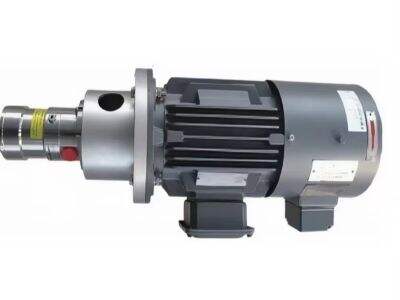ဒီမှာ အကြောင်းပြချက်တစ်ခုရှိပါတယ်၊ သို့မဟုတ် လူသောက်ရေထုတ်လုပ်မှုစနစ်ကို အသုံးပြုလျှင် ပัম်ပေးခြင်း၏ အရေးကြီးမှုကို အလွယ်တကူ သိရှိရန် စတုတ္ထပုဒ်သို့ ခုန်ခြောက်လို့ရပါတယ်။ ပัမ်က ရေကို စနစ်အတွင်းဖြင့် ရွှေ့ပေးပြီး သောက်ရေအား သုံးစွဲရန် မှန်ကန်စွာ သန့်ရှင်းပေးနိုင်စေပါတယ်။ သင့်ရဲ့ လူသောက်ရေထုတ်လုပ်မှုစနစ်အတွက် ပိုင်းခြေကို ရွေးချယ်ဖို့ အကြံပြုချက်များ
ပัမ်ရွေးချယ်ပြီးသည့်အခါ စဉ်းစားရမည့် အရာများ
အရွယ်အစား: သင့်ရဲ့ လူသောက်ရေထုတ်လုပ်မှုစနစ်က ဘယ်လောက်ရေကို သန့်ရှင်းရန်လိုအပ်မည်ဆိုတာကို စဉ်းစားပါ။ သင့်ရဲ့ ပိုင်းခြေက ဒီအရွယ်အစားရေကို လုပ်ဆောင်နိုင်ရမည်ဆိုတာကို ရွေးချယ်ပါ။
အားပေးခြင်း: ပိုင်းခြေက လူသောက်ရေထုတ်လုပ်မှုစနစ်အတွင်း ရေကို အားပေးနိုင်စေရန် လိုအပ်သော အားပေးခြင်းကို ရွေးချယ်ပါ။ ရွေးချယ်ပါ SH အိမ်မြောင်းကြီးပိုင်းပြုလုပ်ရေးပိုင်းပြုလုပ်ရေး သင့်အသုံးအဆင်အတွက် လိုအပ်သော အားပေးခြင်းကို ပေးနိုင်သည့် ပိုင်းခြေကို။
အသေးစိတ်ရှိမှု: ကောင်းသောပัмပ်တစ်ခုသည် ဆီးနေသောအခြေအနေများကို မျှော်လင့်နိုင်ရန် ပိုင်းခြားဖြစ်ရပါမည်။ အရှည်အမြတ်အတွင်းရှိနိုင်သည့် qualité ဝัสด်အရွယ်အစားများဖြင့်တည်ဆောက်ထားသောကို ရှာဖွေပါ။
Salt ထုတ်လုပ်ရေးနှင့် salt ထုတ်လုပ်ရေးအတွက်သုံးလေ့ရှိသောပัမ်ပ်များ၏မျိုးမျိုး
အကြောင်းပြောခဲ့သည်မှာ သင်သည် salt ထုတ်လုပ်ရေးအတွက်မျိုးမျိုးသောပัမ်ပ်များကိုသုံးနိုင်သည်။ အများအားဖြင့်တွေ့ရှိနိုင်သောမျိုးမျိုးမှာ:
(3) Centrifugal Pumps: ဒီပัမ်ပ်များသည် ရေကို စနစ်တစ်ခုတွင် လှုပ်ရှားသော အစိတ်အပိုင်းတစ်ခုကို အမှားနှင့်အတူ တိုးချသည်။ ကုသိုလ်နှင့် မှန်ကန်မှုကြောင့် သူတို့သည် အများအားဖြင့်သုံးသည်။
Positive Displacement Pumps ဒီသည် ရေအရေအတွက်ကို အကြောင်းအရာတစ်ခုကို သောက်ပြီးနောက် ထိုကို စနစ်တစ်ခုတွင် ပေးဆောင်သည်။ သင့်အား အကြံပြုမှုအများအပြားလိုအပ်သည့်အခါ သူတို့သည် အသုံးဝင်သည်။
အနံပြန်ခွဲမှုပั๊မ်များ: သူတို့သည် ကြောင်းရေထုတ်လုပ်ရန် အသုံးပြုသောအနံပြန်ခွဲမှုစနစ်များအတွက် ဒီဇိုင်းထုတ်ထားသည်။ သူတို့သည် ရေကို အထူးဖျော်ဖြာချက်တစ်ခုအတွင်း အလွယ်တကူသွားလေ့ရှိသည်။
စနစ်အတွက်ပั๊မ်အရွယ်အစားသတ်မှတ်ခြင်း — မှန်ကန်သောနည်းလမ်း
ထို့နောက်၊ ပั๊မ်တစ်ခုရွေးချယ်လျှင် အရွယ်အစားမှာ မှန်ကန်သည်ဟု ပြုပါ။ အောက်ပါအကြံပြုချက်များရှိသည်-
ထုတ်လုပ်မှုအตราချိန်တွက်ချက်ခြင်း: သင့် carbides တို့က ဘယ်လောက်ရေထုတ်လုပ်မည်ကို တွက်ချက်ပါ။ ပั๊မ်သည် ထိုထုတ်လုပ်မှုအတွက် အဆင့်အတန်းရှိရန် စစ်ဆေးပါ။
ခေါင်း-pressure အကြောင်းစဉ်းစားပါ: ခေါင်း-pressure သည် ပั๊မ်က ရေကို စနစ်အတွင်း ရွှေ့ပြောင်းရန် လိုအပ်သော အားပိုင်းဖြစ်သည်။ ထို-pressure တွင် အားပေးပั๊မ်များ လုပ်ဆောင်နိုင်ရမည်.
ပြောင်းလဲချက်တစ်ယောက်မှ မေးမြန်းပါ: သင့်အားဖြင့် ဘယ်ပั๊မ်ပေးရမလဲဆိုတာ မသိပါက၊ သိသူတစ်ယောက်ကို မေးမြန်းခြင်းဟာ ကောင်းသောကြောင့်ဖြစ်ပါတယ်။ သင့်စနစ်အတွက် ထို့ကြောင့် မှန်ကန်သောပั๊မ်ကို ရွေးချယ်ပေးခြင်းတွင်လည်း ကူညီပေးနိုင်ပါသည်။
ပั๊မ်တစ်ခုရွေးချယ်ရာတွင် စဉ်းစားရမည့်အရာများ
ပั๊မ်တစ်ခုရွေးချယ်ရာတွင် ရှာဖွေရန်အတွက် အဓိကဆိုင်ရာအချက်များ
ကြောက်ကြားမှုကို မက်များ: ဒီဇက်လိုင်းစနစ်တစ်ခုက လွယ်ကူစွာ ရောင်ရောင်ဖြစ်နိုင်သည်၊ ထို့ကြောင့် သင့်အားဖြင့် အသုံးပြုနိုင်သည့် အားမြင့်-pressure ပန့် ကော်ရိုးချို့မှုအား စိတ်ဖြစ်မှုမရှိသော ပစ္စည်းများဖြင့် လူ့သွင်ထုတ်ထားသည်.
အင်္ဂါအကျိုးသီးသန့်: အင်္ဂါအသုံးပြုမှု လျော့နည်းသော ပัмကိုရွေးချယ်ပါ. ဒါဟာ ကျသင့်အချိုးအစားကို လျော့နည်းစေပြီး သင့်ရဲ့ စနစ်ကို ပို၍ သဘာဝဆိုင်ရာ လုပ်စေပါတယ်.
လွယ်ကူစွာ မိမ်းဆောင်နိုင်သည်: လွယ်ကူစွာ မိမ်းဆောင်နိုင် ရွှေ့ပြီး ပြန်လည်လုပ်ဆောင်နိုင်သော ပန်းကိုရွေးချယ်ပါ. ဒါက သင့်ရဲ့ ဆေးပွဲဖြေရှင်းမှုစနစ်က လွယ်ကူစွာ လုပ်ဆောင်မှာဖြစ်စေမည်.
မှီခိုမှုများ မှီခိုမှု — ဘယ်လိုအရေးကြီးလဲ
သင့်အား အဆိုပါ ပန်းကို ရွေးချယ်ပြီးနောက်၊ သူ့ရဲ့ အသက်ရှင်မှုကို မှီခိုပြီး ထိန်းသိမ်းရန် လိုအပ်ပါတယ်. ဒီမှာ အချို့အက်ဥပဒေများ မှတ်သားထားပါတယ်:
ပั๊มအရေးတွင်း: ပั๊များကို မှန်ကန်သော အခါအလို၌ သောက်ဖြစ်မှု သို့မဟုတ် အခြားအရာများကို ဖယ်ရှားရန် ထိန်းသိမ်းပါ။
ပျံ့နှံ့မှုကို လူ့အားဖြင့် ပြောင်းလဲမည့် ပြဿနာများကို တွေ့ရှိရန် ပိတ်ဆို့ထားပါ။
အဖွဲ့ဝင် လုပ်ဆောင်မှု: ပိတ်ဆို့ထားသော ပိတ်ဆို့ထားသော ပိတ်ဆို့ထားသော လုပ်ဆောင်မှုကို လုပ်ဆောင်နေသည်မျှ စွမ်းအားကို စစ်ဆေးပါ။
အလွန်ကြီးမားသော အကြံပြုချက်များနှင့် အနည်းငယ်လုပ်ငန်းများဖြင့် သင့်ရဲ့ ရေဖျက်ခြင်းစနစ်က အများကြီးများအတွက် လွယ်ကူစွာ လုပ်ဆောင်နေပါမည်။

